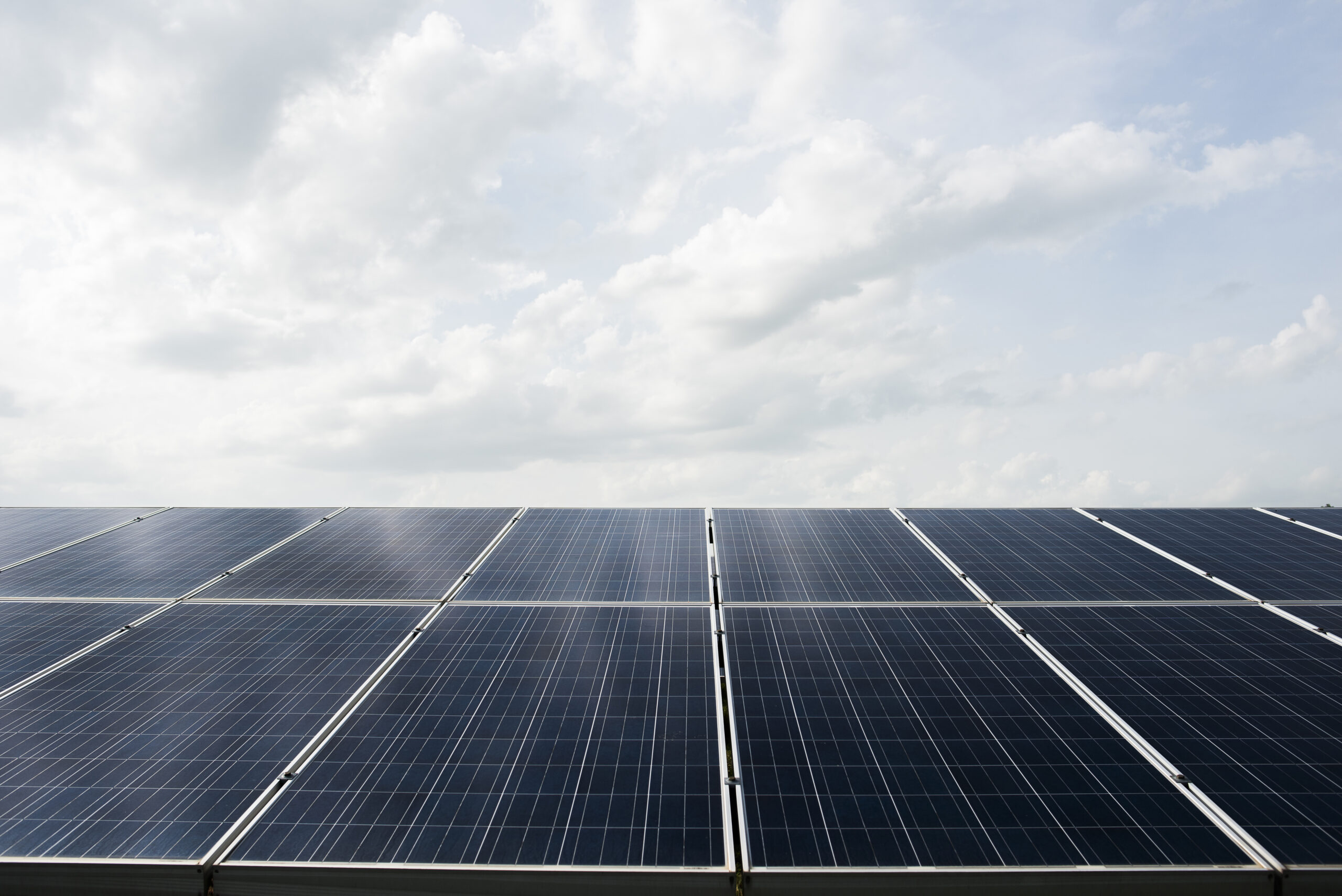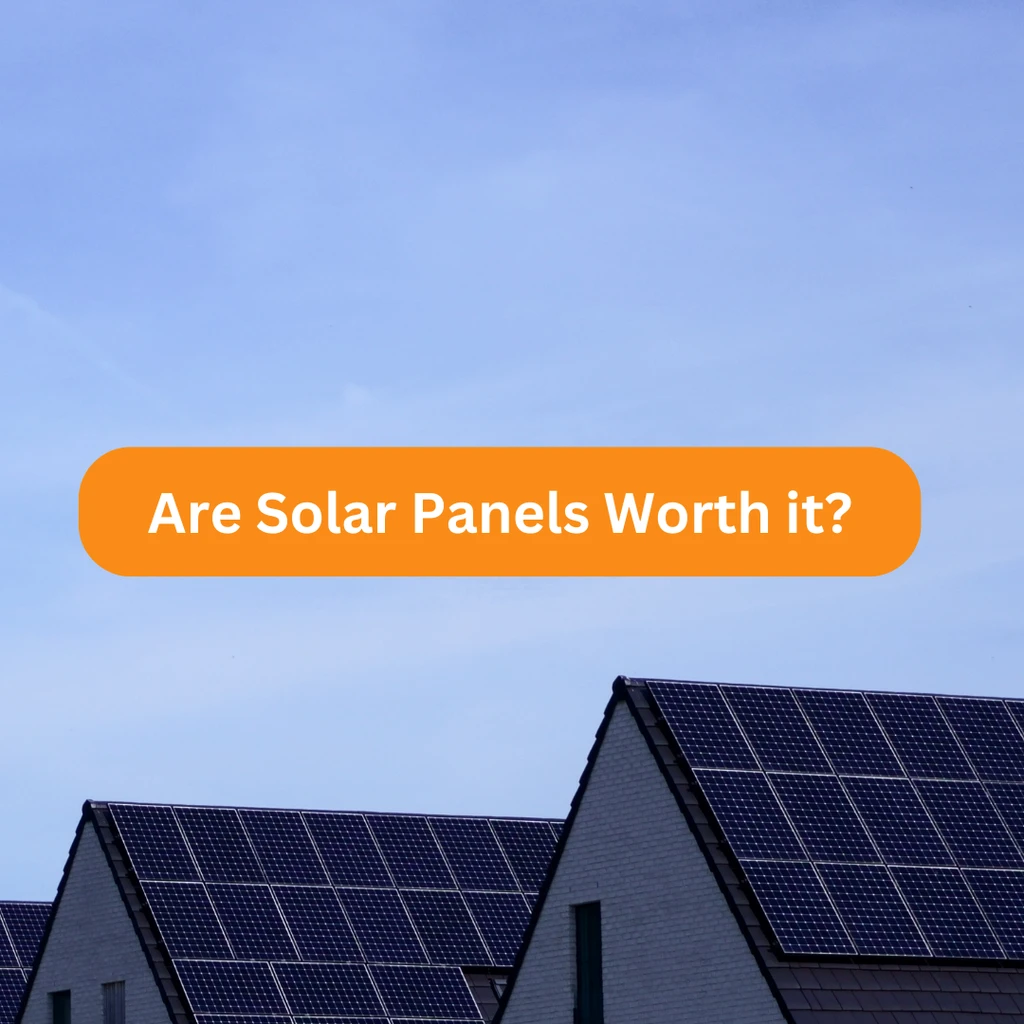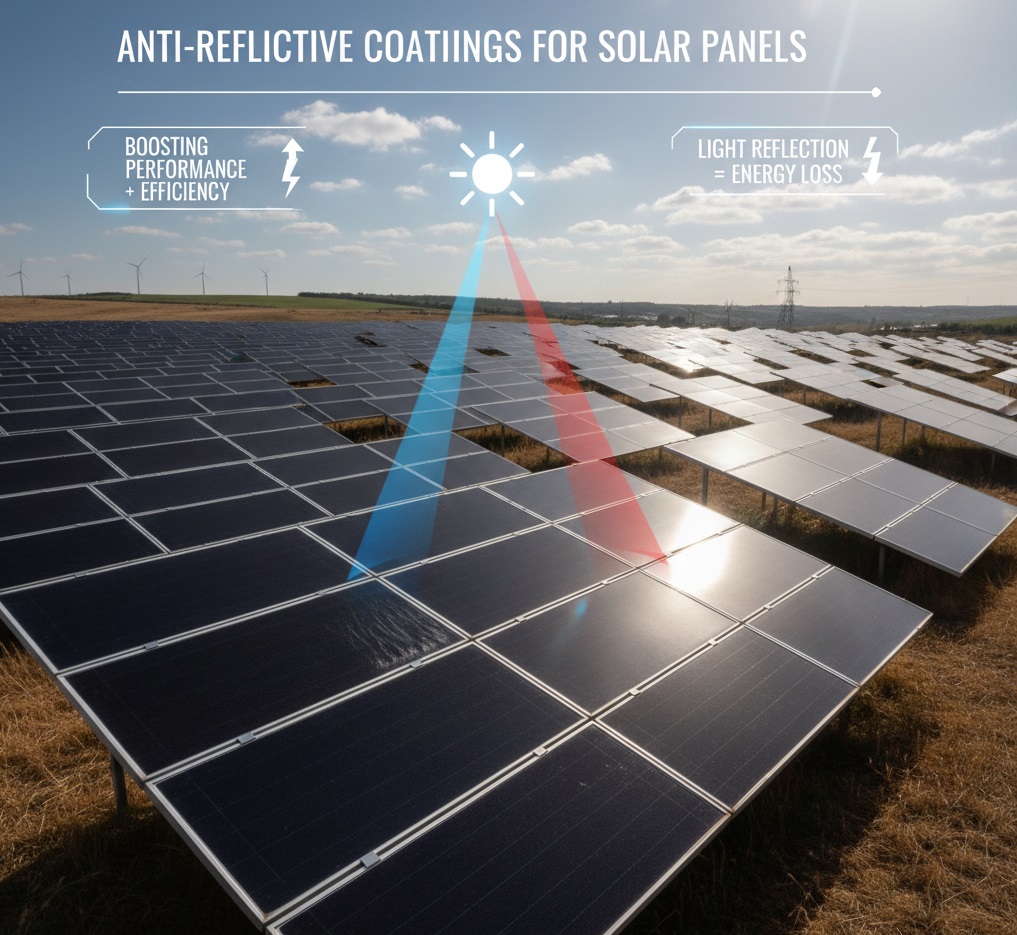Solar panels are made to catch sunlight and turn it into power. But did you know that some sunlight doesn’t even get inside the panel? It bounces off the glass like a mirror. That means less energy for you.
This is why people use anti reflective coating. It’s like giving your solar panels a pair of glasses that don’t glare. The coating helps more sunlight go in, which means more power comes out.
What Is Anti Reflective Coating?
An anti reflective coating is a very thin layer put on the top glass of a solar panel. Its job is simple — stop sunlight from bouncing away.
You can think of it like the anti-reflective glass coating on eyeglasses. Without it, you see glare. With it, you see clearly. For solar, it means the panel gets more light to use.
Some coatings are added during the making of the glass, and others are like an antireflection coating film that can be applied later.
How Does It Work?
Light acts funny. When it hits glass, some goes through, and some bounces off. An anti reflective coating makes the glass surface “friendlier” to sunlight, so instead of bouncing away, the light enters the panel.
Sometimes it’s just one thin layer, sometimes more. Some coatings even use tiny patterns, like the eyes of a moth, so light doesn’t escape.
The idea is simple: more light inside = more energy outside.
What Materials Are Used?
Companies use different stuff to make coatings:
- Silicon dioxide (a strong, clear material).
- Titanium dioxide (helps reduce glare a lot).
- Zinc oxide (good at letting light pass through).
- Special films (cheaper but may not last as long).
Some new coatings are also self-cleaning, which means dust and water don’t stick to them.
How Much More Power Do They Give?
Adding a coating might sound like a small thing, but it can increase solar power by 3–5%. That’s big when you look at 20–25 years of a solar panel’s life.
Imagine a large solar farm — just a small increase means a lot more electricity and savings. Even on a home rooftop, every little bit helps.
Who Should Use Anti Reflective Coatings?
Not everyone needs it, but many people benefit:
- Homeowners with rooftops → small space, so every bit of power matters.
- Large solar farms → tiny gains make a huge difference.
- Buildings with solar glass → no glare and more power.
- Dusty or bright areas → where sunlight reflection is worse.
- Bifacial panels → panels that take sunlight from both sides.
If you want your solar system to be more efficient, coatings are worth a look.
What Are the Downsides?
Of course, nothing is perfect:
- Coated panels cost more.
- Some coatings can wear down with time and cleaning.
- Dust can still reduce the benefit if you don’t clean your panels.
- Adding coatings makes the panel-making process a little harder.
But most people see the benefits outweigh the problems.
How to Get the Best Out of Solar Panel Coating
- Pick good quality coatings so they last longer.
- Clean panels gently and regularly.
- Choose a coating that fits your local weather.
- Work with trusted companies who know what they’re doing.
What’s Next for Anti Reflective Glass Coating?
The solar world is always improving. Some cool things coming up:
- Self-cleaning coatings that keep panels dust-free.
- Smart coatings that also reduce heat.
- Nature-inspired coatings (like lotus leaves or insect eyes).
This means future panels will not only catch more sunlight but also stay cleaner and work better with less care.
Final Words
Solar power is all about catching as much sunlight as possible. Anti reflective coating makes sure panels don’t waste it. By reducing reflection, it helps panels work harder, last longer, and save more money in the long run.If you’re planning solar for your home, business, or a big farm, think about solar panel coating. It may cost a bit more at first, but the extra energy you get back makes it worth it.




